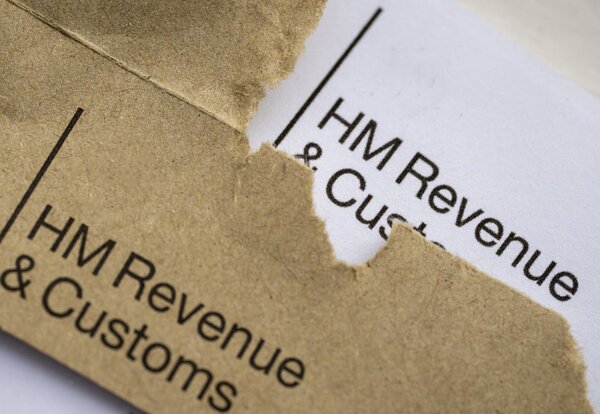Key Takeaways
Understanding when you need a UTR can save headaches with HMRC. It ensures you're tax-compliant in all situations that require it.
Pie.tax's smart dashboard helps track all your tax identifiers in one place. Or if you're just here to get to grips with it all, let's break it down!
What is a UTR Number?
A Unique Taxpayer Reference (UTR) is a 10-digit number issued by HMRC. It identifies you within the tax system and stays with you for life once issued.
UTRs are automatically provided when you register for Self Assessment. You'll find yours on previous tax returns, HMRC letters, or your Government Gateway account.
Unlike your National Insurance number, a UTR isn't issued to everyone. You'll only get one when HMRC needs to track your tax affairs outside the PAYE system.

Do I Need a UTR Number If I'm Not Self-Employed?
The short answer is: it depends on your specific circumstances. Many people who aren’t self-employed still need a UTR.
Self employed individuals and sole traders and even someone who is doing side-hustles must register with HMRC and inform HMRC about their business activities to receive a UTR. When someone registers for Self Assessment, HMRC issues a Personal UTR for tax identification and communication.
You’ll need one if you receive rental income from property or other untaxed income, such as investment earnings. HMRC requires landlords and anyone with untaxed income to register for Self Assessment and obtain a UTR, even if that’s your only income outside employment.
Foreign income, capital gains exceeding annual allowances, or high earnings (over £100,000) all trigger Self Assessment requirements. The need to file a tax return and obtain a UTR depends on your earnings and the specific tax year in question.
PAYE Employees and UTR Numbers
If you’re a standard employee paid through PAYE with no other income sources, you probably don’t need a UTR number.
Your employer handles your tax affairs through the PAYE system. Your employer uses an employer's PAYE reference number for tax administration, which is different from a UTR number used for self-employed individuals. Your tax code, based on your earnings, determines how much tax you pay through PAYE. If you only have PAYE income, you do not need to pay tax directly or use a UTR number, as your employer handles this for you. They deduct tax and National Insurance before paying your wages.
I once assumed my PAYE job meant I didn’t need a UTR. When I started earning modest royalties from a book, I quickly learned otherwise and had to register for Self Assessment.

How to Get a UTR Number If You Need One
If you determine you need a UTR, you must register for Self Assessment. This can be done through the GOV.UK website. You can register online for Self Assessment through the HMRC website and HMRC's online services, which is often the quickest way to start the process.
Choose the registration form that matches your situation. Options include new self-employment, property income, or other income sources.
After submitting your registration, HMRC will post your UTR within about 10 working days. It typically takes a few weeks to receive your UTR after registering, so allow enough time before any filing deadlines. They don’t provide UTRs by email or phone for security reasons.
You will need your UTR to file your first tax return and all subsequent self assessment returns, always using the same UTR number for consistency and proper identification.
You can’t apply for a UTR “just in case” – HMRC only issues them when you have a valid reason to file Self Assessment. Once you have a UTR, keep it safe. You’ll need it for all future tax communications with HMRC.
Protecting Your UTR Number
Your UTR number is a key part of your identity within the UK tax system, so it’s vital to keep it secure. Only share your UTR number with trusted parties, such as your accountant or HMRC, and never disclose it in response to unsolicited emails or phone calls. Be alert to phishing attempts and scams that may try to obtain your UTR number for identity theft or tax-related fraud.
When registering for self assessment or filing tax returns online, always use a secure internet connection and keep your login details confidential. By taking these precautions, you help protect your tax affairs and ensure that your self assessment, tax returns, and other filings remain safe from unauthorized access.

What If Your Circumstances Change?
If you have a UTR but no longer need to file Self Assessment, you should tell HMRC. This might happen if you’ve stopped renting property, for example.
Submit your final Self Assessment return, marking it as your last one. This prevents HMRC from expecting future returns and potentially issuing penalties. If you receive a tax bill after your circumstances change, contact HMRC to clarify your situation and ensure your records are up to date.
Your UTR remains valid even when your circumstances change. If you need to file Self Assessment again in the future, you’ll use the same number.
Don’t worry if you lose your UTR – HMRC can retrieve it for you. This might involve identity verification to ensure security.
Final Thoughts
UTR numbers aren't exclusively for the self-employed, though that's their most common association.
Consider your complete tax situation when deciding if you need one. This includes property income, investments, and any roles as a company director. When uncertain, it's better to check with HMRC than assume you don't need a UTR. This helps avoid penalties for unfiled returns.
Remember that having a UTR doesn't automatically mean you must complete Self Assessment every year. It depends on your ongoing circumstances.

Pie.tax: Simplifying Your Tax Journey
Whether you need a UTR or not, the UK's first personal tax app can help clarify your position. We assess your unique circumstances against current HMRC rules.
Our smart system tracks all your income streams automatically. It determines if you need a UTR number and Self Assessment based on your specific situation.
Pie provides timely notifications when your situation changes. You'll know exactly when you need to register for new tax services, helping you stay compliant.
For those who need to submit returns, we offer direct HMRC filing capabilities. This makes the process straightforward and less intimidating.
Why not explore the Pie.tax app to see how we can simplify your tax journey, whatever your employment status?











